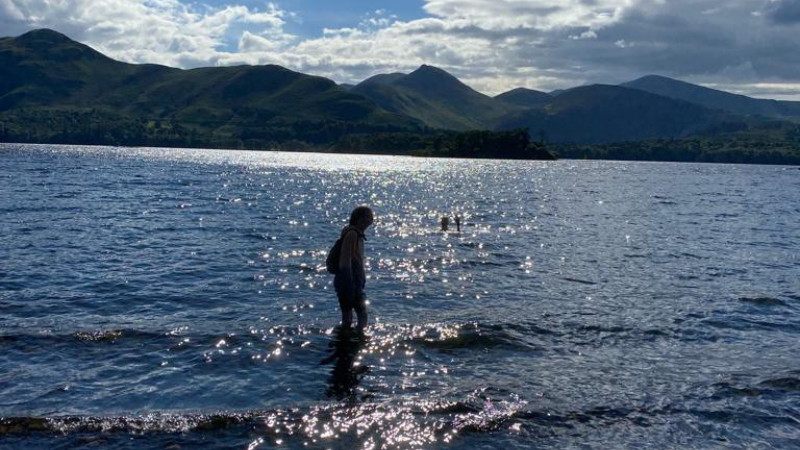
On average, 400 people drown in the UK each year – some individuals survive drowning events, but, many are left with severe, life-changing injuries. Given the nature of what we do, we see the dangers, and we know all too well the horrors of what can happen if it goes wrong.
While a dip in a lake, canal, reservoir, river, or sea can seem like the perfect way to cool off during a heatwave, it is never a good idea and can lead to tragedy. Whether you are a strong swimmer or not, water can be unpredictable and dangerous. Even on a hot day, open water can be incredibly cold and can cause your body to go into shock, making swimming extremely difficult.
Team Leader David Berry, who works in our Hazardous Area Response Team, says: “Open water might look inviting and a good way to cool down in extreme heat, but there are many hidden dangers which can sadly, as we have witnessed on many occasions, have tragic consequences.
“We know there is a growing trend for open water swimming as the physical and mental health benefits are well-known, we would still advise people in the North West to respect the water and fully assess any risk before taking to the water.
“If you want to try open water swimming, we recommend you to visit an accredited or recognised open water venue where staff can help you with safety advice and help you get accustomed to swimming outdoors. It isn’t worth the risk to swim in unsupervised open water.”
Would you know what to do if you were in trouble in cold, open water?
The best thing is to avoid open water and putting yourself at risk. The Royal National Lifeboat Institution’s campaign float to live gives great advice:
– F FIGHT your instinct to panic or swim hard
– L LEAN back in the water to keep the airway clear
– O OPEN your body up, pushing your stomach up
– A ACTIONS gently move hands and feet to keep afloat
– T TIME In 60-90 seconds, you’ll be able to adjust and control your breathing.
For bystanders you (the Jack Pullen Foundation):
W- WATCH the person in the water; keep your eye on their location
A- ASK someone to call 999
T- THROW a life ring PRE or floatation device
E- ENCOURAGE the casualty to float and gently move their legs and hands to stay afloat
R- RESIST entering the water yourself as you may get into danger too.